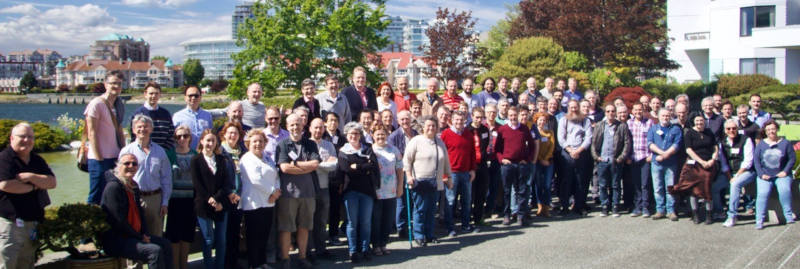News From the VO Via ActivityPub

If you ask us: Get a proper client to join the Fediverse. But as shown here, in a pinch a web browser will do, too.
When Twitter was still fairly young, we had an account there that would tweet out when new data collections appeared in the VO. Even back then, I was rather doubtful whether using a proprietary platform to disseminate open data is a good idea, but as long as the content was also available through standard protocols (RSS in this case), I thought it might be worth a try. Well: It never really took off, and after Twitter broke the whole thing a couple of times by incompatible API changes, I finally let it go ca. 2017.
Given to the recent mass exodus from the smouldering remains of Twitter into the open and standard Fediverse, I thought reviving our little missives there might actually be a worthwhile effort. Specifically, joining Mastodon – which speaks the ActivityPub protocol and hence is part of the Fediverse – has become really straightforward.
So, if the VO Fresh RSS Feed is not for you (perhaps because you do not have an RSS aggregator, which would be a shame), maybe following our new Mastodon account @gavo@botsin.space would be for you?
Followup (2024-11-21)
In late 2024, botsin.space shut down, and we moved our operations to @gavo@astrodon.social; so, please point your fediverse clients there.
Followup (2025-03-13)
While we would obviously nudge people to properly open and federated systems like the mastodon or the Fediverse in general, you can follow us from bluesky, too. Try @gavo.astrodon.social.ap.brid.gy there.
Followup (2025-07-01)
Oh bother, astrodon.social shut down, too. Perhaps we really need to run some sort of activityPub server of our own? Or convince some university to do it? Until then, we have moved on to fediscience.org. You can now follow @gavo@fediscience.org. From bluesky, we are now @gavo.fediscience.org.ap.brid.gy.
Oh, and yes, I give you the previews the Mastodon web client produces for VizieR resources are not overly pretty yet (curse Javascript templating!), but then if I were you, I'd disable URL previews anyway; really, they are little more than an annoyance.
This post also doubles as identity verification, so:
Visit Our Mastodon Page.
![[RSS]](../theme/image/rss.png)
